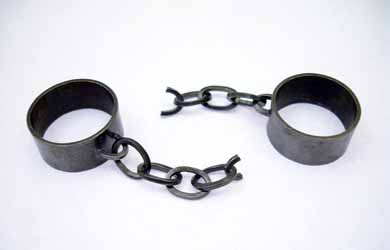Today we once again break from the mundane to reach into the crevasses of history and reality to talk to Manuel, a former slave on the island of Cuba. These are his responses, as best I can reproduce his thick Afro-Cuban accent.
“Manuel, in what year did you receive your freedom?”
“I got my freedom in 1886. We all did.”
“But slavery had ended on the island in 1880?”
“Slavery had only ended in name, we was ‘apprentices’ under the patronato system. But we didn’t get wages, and we couldn’t leave our masters.”
“So, how long were you a slave on the island?”
“My whole life ‘til I was 37.”
“What did you do after you were given your freedom? Did you stay on with your former master?”
“Not at first. Bunch of us moved to our own community and grew crops for ourselves.”
“That must have been a hard adjustment.”
“Jaja, not just for us. Old mista had a rough time on the sugar plantation too.”
“What do you mean Manuel?”
“With all of us freed, he didn’t have nobody to work his cane. Not for a while at least. Then they started bringing them in to work.”
“Who is ‘them’?”
“They called them lots of names. We found out later they were from India and China; from all over Asia. They say it’s a lot like here there.”
“You mentioned they brought them? Were they slaves?”
“Not exactly, the ones I knew said they got some wages. But, they were living in our old homes, doing our old work, under the same old whip.”
“How did that make you feel?”
“All mixed up. Freedom is a great thing. Nothing compares to being able to walk where you want. But, we didn’t have our jobs no more. We was replaced by them and that made lotsa us mad.”
“What was that freedom like?”
“Like I said, for a while, even after ‘slavery’ was over we was still doing the same jobs. That wasn’t real freedom. But, after things started bettering. Some of us kept working in the cane fields, while others did special jobs. Our women still had to work, but our children could go to municipal schools. We all wanted them to do better than we did.”
“What about you? What did you do after patronato came to a close?”
“I went back to the cane fields. I did the same work as before, but now I was making my own money.”
That must have been tough, returning to those fields with all of the memories and hardships. Why would you do it?”
“It was all I knew. I had to provide for my kids. I guess I hoped that they would be able to grow up and raise a family that never knew the whip of slavery.”
The above dialog is mostly fictional. However, for former slaves on Cuba this scene might have been all-too-real. It is true that slavery “ended” in 1880 when a system of apprenticeship was instituted, which bound former slaves to the land without pay. Finally, in 1886, the peculiar institution was overturned and while many left the cane fields, many were not able. Freedom was a complex concept that held a much different meaning then, yet for these former slaves, it was glorious.
Sources:
“Passenger Lists to and from Cuba”. CubaGenWeb. (11/19/11). Retrieved from <http://www.cubagenweb.org/pass.htm>
Sierra, J.A. “End of Slavery in Cuba”. Historyofcuba.com. (11/19/11). Retrieved from <http://www.historyofcuba.com/history/race/EndSlave.htm>
Staten, Clifford L. (2003). The History of Cuba. (pp. 31-34). Westport, CT: Greenwood Publishing Group

